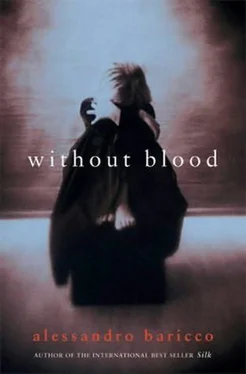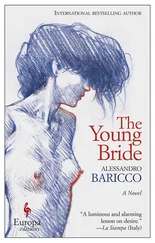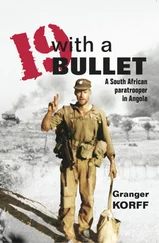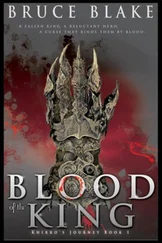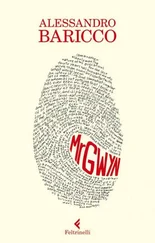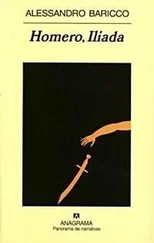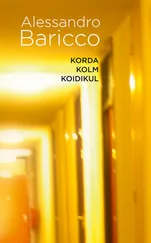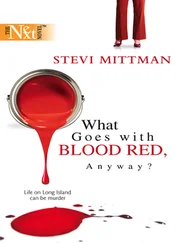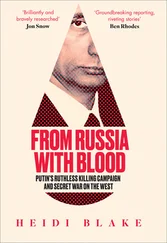She decided to turn right, and fell in with the collective promenade. In no hurry, she went along beside the shop windows, holding the shawl over her chest. She walked tall and confident, with a youthful bearing in spite of her age. Her hair was white, gathered at the nape and held by a dark comb, like a girl’s.
She stopped at the window of an appliance shop, and stood staring at a wall of televisions broadcasting pointless multiplications of a single news commentator. Each was tinted a different color, which fascinated her. A film began of some cities at war and she resumed her walk. She crossed Calle Medina and then the little Plaza del Perpetuo Socorro. When she arrived at the Galería Florencia she turned to look at the prospect of the lights extending in a line through the belly of the building and out the other side, into Avenida 24 de Julio. She stopped. She raised her eyes to look for something on the grand iron archway that marked the entrance. But she found nothing. She took a few steps inside the Galería, then stopped a man. She excused herself, and asked him what the place was called. The man told her. Then she thanked him and said that he would have a most beautiful evening. The man smiled.
So she began to walk through the Galería Florencia, and eventually she saw, some twenty yards ahead, a small kiosk that stuck out from the left-hand wall, creasing for a moment the clean profile of the space. It was one of those kiosks where lottery tickets are sold. She continued walking, but when she was a few steps from the kiosk she stopped. She saw that the man who sold the tickets was seated, reading a newspaper. He held it resting on something in front of him, and he was reading it. All the sides of the kiosk were of glass, except the one that was against the wall of the Galería. Within, the ticket man could be seen, and a mass of colored strips hanging down. There was a small window, in front, and that was the opening through which the ticket seller talked to people.
The woman pulled back a lock of hair that had fallen over her eyes. She turned and for an instant stood looking at a girl who came out of a shop pushing a carriage. Then she looked at the kiosk again.
The ticket seller was reading.
The woman approached and leaned toward the window.
“Good evening,” she said.
The man raised his eyes from the newspaper. He was about to say something, but when he saw the woman’s face he stopped, completely. He remained like that, looking at her.
“I would like to buy a ticket.”
The man nodded yes. But then he said something that had nothing at all to do with that.
“Have you been waiting a long time?”
“No, why?”
The man shook his head, continuing to stare at her.
“Nothing, excuse me,” he said.
“I’d like a ticket,” she said.
Then the man turned and stuck his hand up among the strips of tickets hanging behind him.
The woman pointed to a strip that was longer than the others.
“That one there… can you take it from that strip?”
“This one?”
“Yes.”
The man tore off the ticket. He glanced at the number and nodded approval with his head. He placed it on the wooden counter between him and the woman.
“It’s a good number.”
“What did you say?”
The man didn’t answer because he was looking at the woman’s face, as if he were searching for something.
“Did you say it’s a good number?”
The man lowered his gaze to the ticket:
“Yes, it has two 8’s in a symmetrical position and has equal sums.”
“What does that mean?”
“If you draw a line through the middle of the number, the sum of the figures on the right is the same as those on the left. Generally that’s a good sign.”
“And how do you know?”
“It’s my job.”
The woman smiled.
“You’re right.”
She placed her money on the counter.
“You’re not blind,” she said.
“I beg your pardon?”
The man began laughing.
“No, I’m not.”
“It’s odd…”
“Why should I be blind?”
“Well, the people who sell lottery tickets always are.”
“Really?”
“Maybe not always, but often… I think people like it that they’re blind.”
“In what sense?”
“I don’t know, I imagine it has to do with the idea of fortune being blind.”
The woman spoke and then she began to laugh. She had a nice laugh, with no sign of age in it.
“Usually they’re very old, and they look around like tropical birds in the window of a pet shop.”
She said it with great assurance.
Then she added:
“You are different.”
The man said that in fact he was not blind. But he was old.
“How old are you?” the woman asked.
“I’m seventy-two,” said the man.
Then he added:
“This is a good job for me, I have no problems, it’s a good job.”
He said it in a low voice. Calmly.
The woman smiled.
“Of course. I didn’t mean that…”
“It’s a job I like.”
“I’m sure of it.”
She took the ticket and put it in a small black purse.
Then she turned around for an instant as if she had to check something, or wanted to see if there were people waiting, behind her. At the end, instead of thanking him and leaving, she spoke.
“I wonder if you might like to come and have something to drink with me.”
The man had just put the money into the cash drawer.
He stopped with his hand in midair.
“Me?”
“Yes.”
“I… I can’t.”
The woman looked at him.
“I have to keep the kiosk open, I can’t go now, I have no one here that… I…”
“Just a glass.”
“I’m sorry… really I can’t do it.”
The woman nodded yes, as if she had understood. But then she leaned toward the man and said:
“Come with me.”
The man said again:
“Please.”
But she repeated:
“Come with me.”
It was strange. The man folded the newspaper and got off the stool. He removed his glasses. He put them in a gray cloth case. Then, very carefully, he began to close the kiosk. He lined up each gesture with the next, slowly, silently, as if it were an ordinary evening. The woman waited, standing calmly, as if it had nothing to do with her. Every so often someone passed by and turned to look at her. Because she seemed to be alone, and was beautiful.
Because she was not young, and seemed alone. The man turned off the light. He pulled down the little shutter and fastened it to the ground with a padlock. He put on an overcoat, which was loose on his shoulders. He went over to the woman.
“I’ve finished.”
The woman smiled at him.
“Do you know where we could go?”
“Over here. There’s a café where one can sit quietly.”
They went into the café, found a table, in a corner, and sat down across from each other. They ordered two glasses of wine. The woman asked the waiter if he had cigarettes. So they began to smoke. Then they spoke of ordinary things, and of people who win the lottery. The man said that usu-ally they couldn’t keep the secret, and the funny thing was that the first person they told was always a child. Probably there was a moral in that, but he had never managed to figure out what it was. The woman said something about stories that have a moral and those that don’t. They went on a little like that, talking. Then he said that he knew who she was, and why she had come.
The woman said nothing. She waited.
Then the man went on.
“Many years ago, you saw three men kill your father, in cold blood. I’m the only one of the three who’s still alive.”
The woman looked at him. But you couldn’t tell what she was thinking.
“You came here to find me.”
Читать дальше
